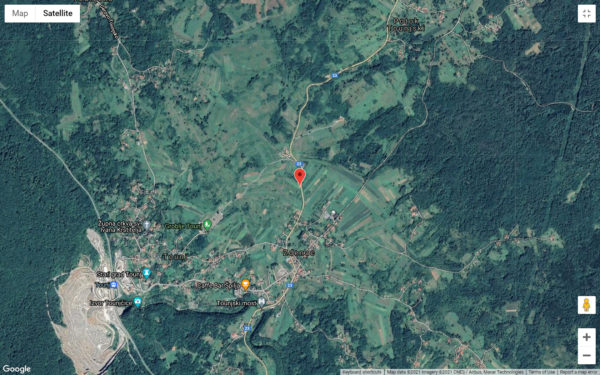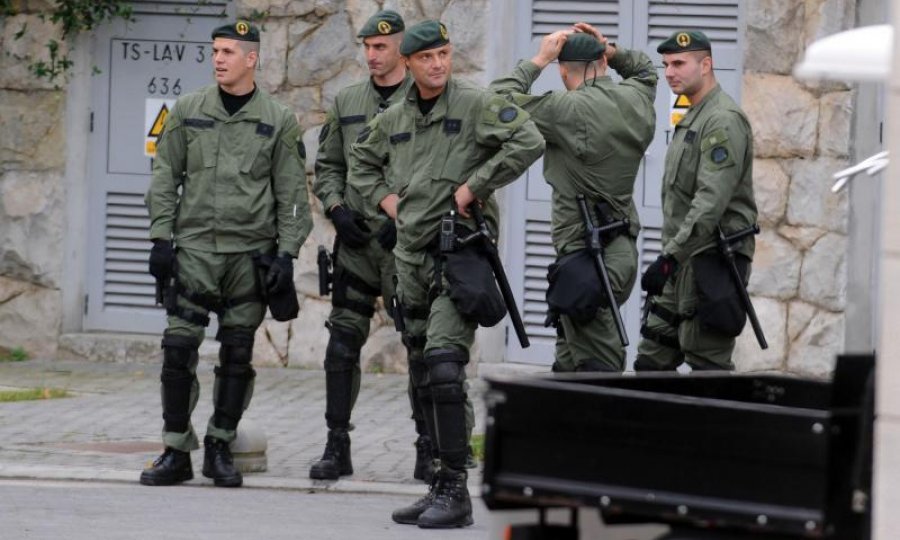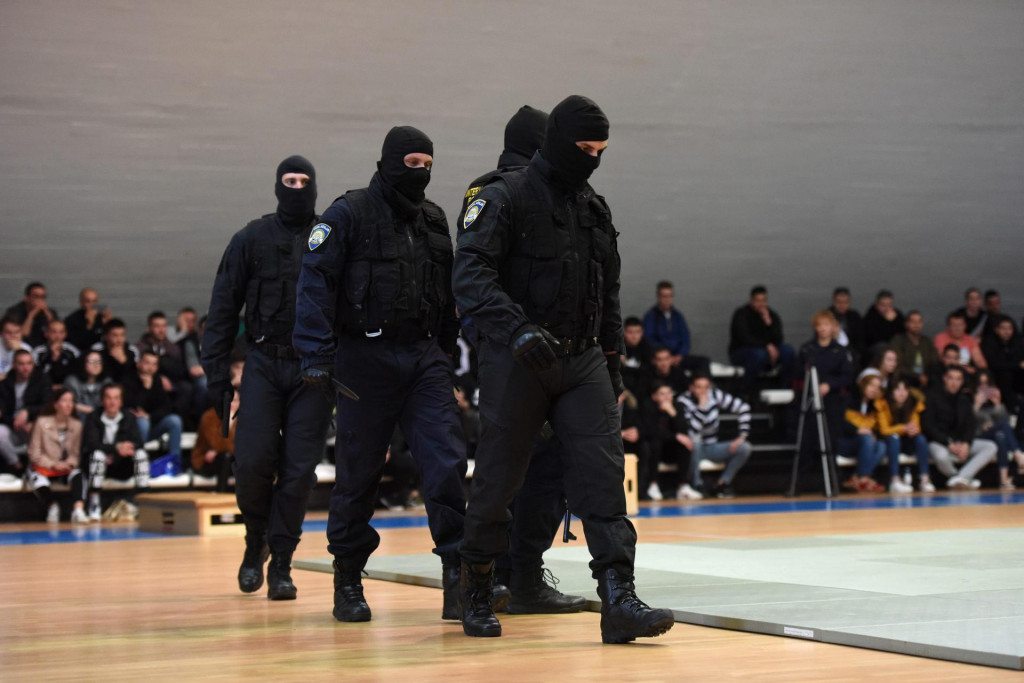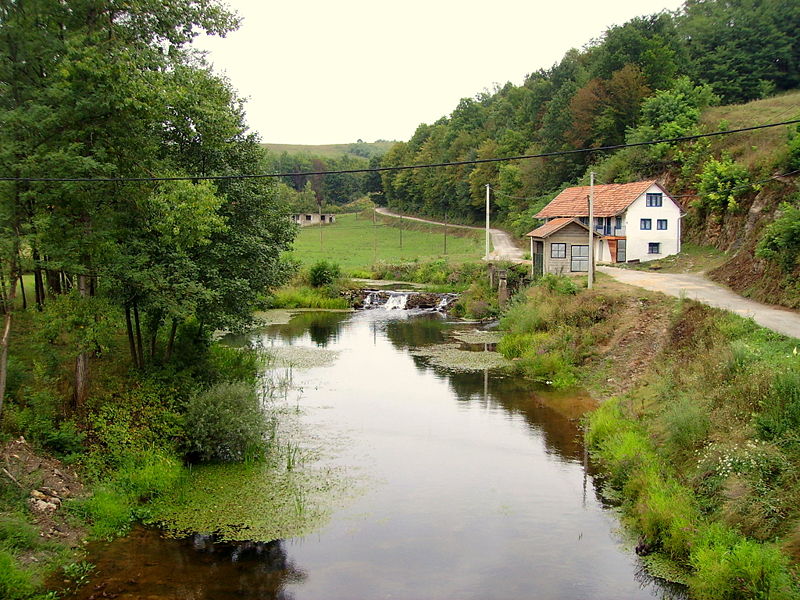The respondent reports that, on Saturday the 16th of October 2021, around 8 pm, a transit group of five people from Afghanistan and three people from Pakistan was apprehended close to the Croatian highway D23, just north of the town of Zdenac (rough coordinates: 45.257221, 15.338146). Originally starting from the Bosnian town of Bihać, this was their fourth day of walking, one day reportedly having consisted of crossing the mountains around the Bosnian-Croatian border which were already covered in snow. The eight men, mostly in their twenties, had before been part of a bigger transit group but had split up because parts of the group wanted to rest while others wanted to keep on walking.

Upon apprehension, the respondent reports that the authorities told them to stop and take off their shoes. The 21-year-old respondent described the two officers who first took them into custody as being dressed in all-green “army” long-sleeve clothing – presumably being the Croatian Special Police, which has in many earlier reports been described as catching transit groups in wilderness areas to then hand them over to other police forces for the actual pushback. These two officers, according to the respondent, were then joined by four additional officers, wearing black long-sleeve uniforms and trousers.

In the meantime, the officers had also apprehended another transit group of 12 people from Afghanistan and the Punjab region of Pakistan who were then put into the same van with them, according to the respondent. In total their detention lasted for about four hours. From inside the van, the respondent estimated that around 40 people in total got apprehended. But he could not see as the van had no windows in the back.
“ ‘Why you go to Europe?’ I said ‘because I have a problem here in my country.’ Then they said to me ‘Don’t come again [to Croatia]. I’m warning you for the last time.’”
These new officers then took them by car on a trip that the respondent said lasted several hours to an unknown police station in a Croatian city. At the said police station, the officers went in and left them waiting in the van for what the respondents recalled as two to three hours. The men dressed in what the respondent has described as army-like clothing had driven back to the forest to, as the respondent assumed, watch out for more transit groups. Although it was night, and cold already, the respondent remarked the policemen had left the air conditioning on in the van in the cold setting, which made them freeze badly, with people – after being crammed for several hours with 19 others in the small space – reportedly barely being able to breathe.
The respondent stated that the transit groups were then driven in two white vans, the other officers following in what were described as two normal size white police cars, all four of them reportedly saying ‘Policija’ on the car, to the Bosnia-Croatian border which they reached between midnight and 1 am. The respondent was not able to remember the exact position his group of 20 was taken to, as it was night and the officers had taken their phones, but reported it as a location around the south of the Croatian village Crni Potok (around 45.217484, 15.880342), northeast of Velika Kladuša, where the Glina river runs through the border of the two countries.
When describing the twelve officers who were involved in pushing them back over the border, the respondent said they were fully dressed in black clothing – four of them additionally also wearing black masks covering their faces – and related the name he and many other people in transit used for this kind of police forces was the ‘Billa group’, which he said were notorious for the most violent behavior in treating transit groups. Presumably, this relates to the fact that the respondent reported these officers wore black masks covering their faces, and ‘Billa’ (بلی) – being the Urdu word for cat – they said in this context they refer to these groups as having “cat’s eyes”. This would also match a description of the Croatian Intervention Police typically wearing a balaclava while carrying out pushbacks.

The officers reportedly had two tall dogs with them which they let get very close to the group. The respondent reported that he was very afraid, as they were trying to attack them; when they reached their bodies the officers then held them back on their leashes. After checking again all of their bags and belongings, which had already happened after apprehension, the officers put all their bags, food, sleeping bags, and clothes in a big pile which the respondent reports they subsequently lit on fire. The respondent remarked that his group was left with nothing but their T-shirts and pants, as all their belongings were burnt, except for their phones, power banks, and money that had been taken from them prior to the drive already.
In order to cross into Bosnia, the authorities then reportedly forced all of the group members to walk through the Glina river, which the respondent said with the dropping temperatures of fall and the higher altitude in the area was extremely cold, and at their point of crossing reached up to their breast. The officers reportedly made them cross in a straight line and by using violence with the first person signaled that if they would not run fast they would be beaten with what the respondent said were thick pieces of wood, up to two meters long. The respondent thus ran fast and straight into the river to avoid the beating. He reported that some of the others were still beaten, on their back and the back of their legs, while some also ran fast enough to dodge the beating.

From the pushback site, still wet, the group then walked around nine hours back to Bihać, which the respondent said proved even harder as several of them had obtained wounds and bruises from the hiking through the mountains and forest as well as the police beating. They arrived back in the center of Bihać around 10 am on the following day.
